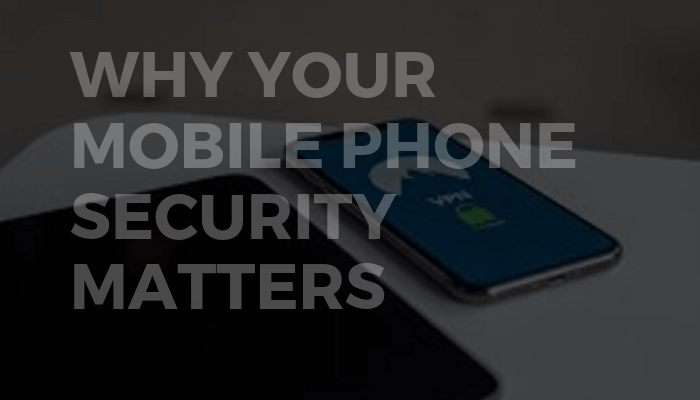Why Your Mobile Phone Security Matters
All smartphone users have extremely valuable personal data stored on their devices. And yet, not everyone is taking the proper precautions to ensure security for all of that data. Without proper protection in place, it is possible that hackers and scammers can gain access to all sorts of information you don’t intend to share, from account passwords and your home address, to credit card information and your social security number.
If you are using your mobile phone for work, you may also be putting your company’s data at risk without adequate security measures in place. According to CS Online, it is believed that each business has a 28% chance of having its data leaked within the next two years. These breaches cost companies about $3.86 million on average, and while we’re not suggesting they’re likely to come from an individual employee’s smartphone, it’s certainly plausible.
Mobile apps are possibly the biggest security risks. Various analyses have indicated that a disturbing number of mobile apps have insecure data storage (possibly about 75% of popular apps), which can lead to your data or device being compromised. In particular, apps like games with for-purchase micro-rewards that have your credit card (or Apple or Google Pay) information, can be particularly well worth guarding in this respect. Similarly, top casino sites coming out of Canada and from Western Europe are becoming significantly more mobile-friendly, meaning users around the world are even directly depositing funds into gaming apps. Even aside from gaming apps altogether though, apps ranging from Venmo to your bank account app will showcase the information you want to be kept private.
Monetary concerns aren’t the whole ballgame, either. Social media apps can also put your data in jeopardy. It is safe to say that plenty of people like to overshare on social media. Many if not most popular platforms (including the likes of Facebook and Twitter) encourage this kind of behavior. However, sharing too much, or too often, can enable cybercriminals to glean more information about you, and potentially breach your device. In severe cases, it can even lead to identity theft or real-world stalking.
- None of this is to suggest that these apps shouldn’t be used, or that these habits shouldn’t be practiced. Rather, it’s just important for everyday users to remain vigilant. CS Online, in the article cited previously, noted that mobile device users are typically unaware that they need to be evaluating apps to make sure they are secure before use.
“The main challenge is how to implement an app vetting process that does not overwhelm the administrator and does not frustrate the users,” explained Gartner’s research director for mobile security, Dionisio Zumerle. He went on to explain that the best way to ensure your mobile device is safe is to use IT software, such as Symantec’s Endpoint Protection Mobile or CheckPoint’s SandBlast Mobile, that can scan for threats.
You can take additional steps as well, such as avoiding downloads from third-party sites, using your device only on secured networks, and removing or avoiding apps you don’t need. Ultimately, it just comes down to being careful. But it does help to remind yourself now and then why modern mobile security is so important so that you don’t let up in your vigilance.





